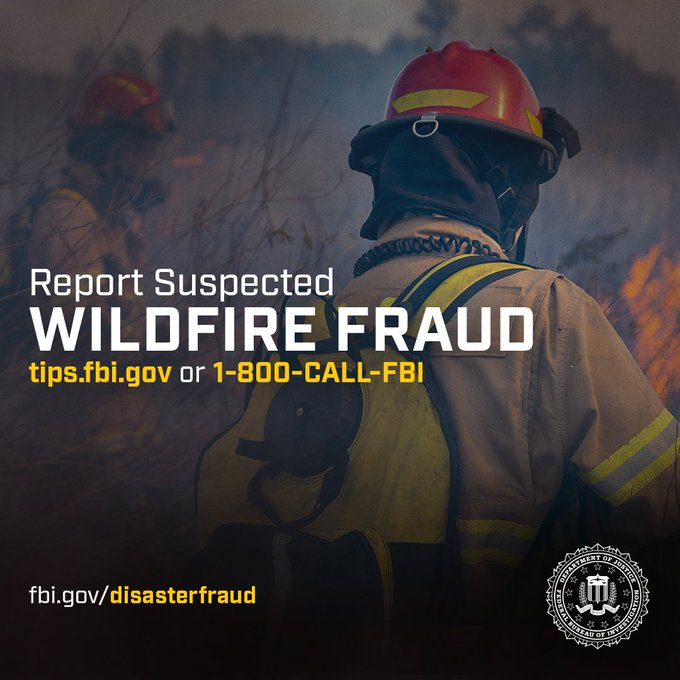
El Paso, Texas (KVIA-TV)-Scam artists are taking advantage of Los Angeles residents as the historic wildfires continue to wreak havoc on parts of southern California. Special Agent Jeanette Harper with the FBI El Paso wants to warn the public that scammers are exploiting mass casualty events and disasters, such as the New Year’s Day terrorist attack in New Orleans and the ongoing wildfires in Los Angeles.
Scam artist are committing fraud by soliciting fake charitable donations to support victims or their families including monetary and cryptocurrency donations as well as in-person collection drives. Agent Harper explains that scammers may pose as disaster relief agencies to collect personal information, conduct charitable fraud schemes, or commit fraud against disaster assistance programs.
The FBI says scammers may also impersonate official entities, celebrities, influencers, or others. For example, a scammer might pose online as a high-profile victim to solicit donations. Artificial Intelligence may be used to increase the perceived legitimacy of a fraud or impersonation. Charity fraud scams can come to you in many forms: emails, social media posts, crowdfunding platforms, cold calls, etc.
Always use caution and do your research when you’re looking to donate to charitable causes. Agent Harper stated that in 2024, the FBI Internet Crime Complaint Center received over 4,500 complaints reporting approximately $96 million in losses to fraudulent charities, crowdfunding accounts, and disaster relief campaigns.
FBI El Paso Tips to Protect Yourself
- Do your research before you donate to anything.
- Verify charities by researching the charity online to see if there are news articles, reviews, or posts linking the charity to fraud;
- Check to see if the charity is registered with your state’s charity regulator.
- Validating that crowdfunding efforts are supporting the beneficiaries advertised;
- Researching who is behind the crowdfunding request and who the request is intended to benefit;
- And reverse-searching images and stories associated with the request, as scammers will often copy and paste material stolen from others.
- Be suspicious of online communications claiming to be from individuals affected by the events and seeking immediate financial assistance.
- Recognize that pressure to “act fast” might signify a scam.
- Do not send payments to unknown individuals or organizations asking for financial assistance.
- Do not communicate with or open texts, posts, emails, attachments, or links from unknown individuals posing as entities.
- Emails from official organizations rarely come from free email services such as Gmail or Yahoo.
The FBI El Paso says, if an unknown individual contacts you, do not release any financial or personal identifying information, and do not send any money. Do not use debit, gift, or prepaid cards for payment. Use these organizations to check out charitable organizations:
BBB Wise Giving Alliance (www.give.org)
Charity Navigator (www.charitynavigator.org)
CharityWatch (www.charitywatch.org)
If you have already donated funds and believe you are a victim of a scheme, do not pay additional fees or taxes to obtain a refund of your money. Please do not pay for services claiming they can recover lost funds. Please immediately contact your financial institution and file a report with the FBI’s Internet Crime Complaint Center at www.ic3.gov.



